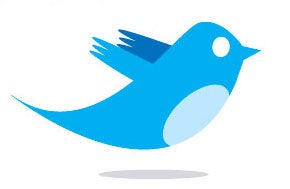Keen on New Media: Twitter need only look at Facebook to see its future problems

February 2009 might well go down as the month when Twitter replaced Facebook as the hottest and coolest company in Silicon Valley.
First, Twitter closed a $35m (£24m) round of venture capital investment at a valuation of about $250m – not bad for a revenue-less start-up in the depths of the worst liquidity crisis since the Great Depression. Second, research from Pew Internet and American Life Project revealed that a whopping 11 per cent of Americans have used a service such as Twitter. Third, in a survey of 200 top digital marketing mavens, Abrams Research showed Twitter trounced Facebook in the all-important question of which social media service is the most effective financial investment for businesses – Twitter getting 40 per cent and Facebook only 15 per cent of the vote.
Of course, the 29 person, two-year-old Twitter is in that pre-adolescent stage of development when it can do no wrong in the eyes of the Silicon Valley cognoscenti. The network has experienced phenomenal growth with active users growing 900 per cent in the past year. Anyone who is anyone is on Twitter these days: Stephen Fry, Barack Obama, Shaquille O’Neal and Jonathan Ross. Best of all, the advertising free Twitter hasn’t had to worry about the inconvenience of revenue with the San Francisco-based company only getting around to hiring its first head of sales in the past month.
The five-year-old Facebook, on the other hand, has – to excuse the teenage metaphor – collided head-on with the pimples of adolescence. While Twitter was having a miraculous February, Facebook’s month has been gruesome. It all began when the Consumerist website, in an inflammatory post entitled “We Can Do Anything We Want With Your Content Forever” noted a number of significant changes in Facebook’s terms of service and suggested that the company intended to keep the information of users who quit the network. “Facebook owns you!” cried tens of thousands of paranoid members, thereby forcing Mark Zuckerberg, Facebook’s 25-year-old CEO, to publicly rescind the changes and limp back to his original TOS.
The storm is really about how the company transforms the information of Facebook’s current 175 million social networkers into dollars and cents. Having been valued at a ludicrous $15bn when Microsoft invested $240m in the social network in October 2007, Facebook is now under immense pressure to prove that its free service can generate significant revenue. And given the premium advertisers pay for personal information, it isn’t surprising that the real fear of the change in its TOS was about Facebook selling the data of its former members to the highest corporate bidder.
Ev Williams and Biz Stone, Twitter’s two young co-founders, should learn from Facebook’s growing pains. In a year or two, Twitter will have inherited these uncomfortable growing pains. The micro-blogging site will have been replaced as the start-up darling of the Valley by a fresh-faced new thing. It will probably also have to quell the digital rebellion of Bolshevik users who claim “ownership” of the service. Most of all, Twitter will soon have to prove to investors that it has a viable strategy for transforming its millions upon millions of Tweets into hard cash.
Join our commenting forum
Join thought-provoking conversations, follow other Independent readers and see their replies
Comments
Bookmark popover
Removed from bookmarks